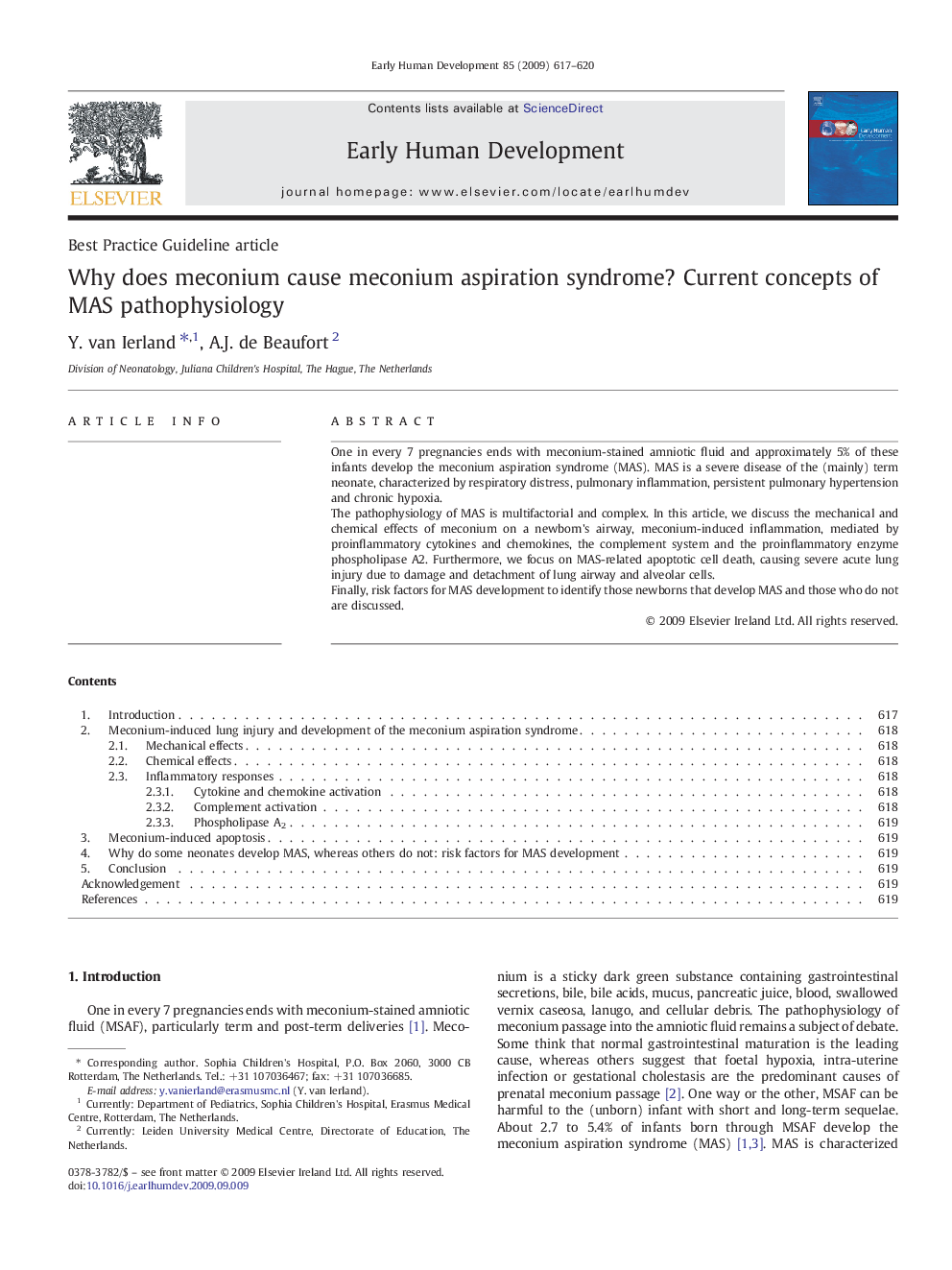| Article ID | Journal | Published Year | Pages | File Type |
|---|---|---|---|---|
| 3917997 | Early Human Development | 2009 | 4 Pages |
One in every 7 pregnancies ends with meconium-stained amniotic fluid and approximately 5% of these infants develop the meconium aspiration syndrome (MAS). MAS is a severe disease of the (mainly) term neonate, characterized by respiratory distress, pulmonary inflammation, persistent pulmonary hypertension and chronic hypoxia.The pathophysiology of MAS is multifactorial and complex. In this article, we discuss the mechanical and chemical effects of meconium on a newborn's airway, meconium-induced inflammation, mediated by proinflammatory cytokines and chemokines, the complement system and the proinflammatory enzyme phospholipase A2. Furthermore, we focus on MAS-related apoptotic cell death, causing severe acute lung injury due to damage and detachment of lung airway and alveolar cells.Finally, risk factors for MAS development to identify those newborns that develop MAS and those who do not are discussed.
